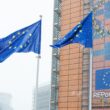The World Bank has agreed to lift its decade-long ban on financing nuclear energy projects in developing countries, signalling a major policy shift aimed at helping nations meet rising electricity demands. The decision, announced by Bank President Ajay Banga, forms part of a broader revision of the Bank’s energy strategy.
In a memo to staff, Banga described the board’s discussion on Tuesday as “constructive”, noting that while consensus had been reached on nuclear power, debate continues on whether the Bank should support upstream natural gas production and under what conditions.
The Bank, which provides low-interest loans for infrastructure and development projects globally, halted nuclear project financing in 2013 and ceased upstream oil and gas funding in 2019, except for limited cases in the poorest countries. Banga, who assumed leadership in June 2023, has advocated an “all of the above” approach to energy policy, arguing that developing nations must be allowed flexibility to secure affordable and reliable power.
Electricity demand in developing countries is expected to more than double by 2035, requiring annual investment to exceed the current $280 billion to expand generation, transmission, and storage capacity. The World Bank’s revised approach will support existing nuclear infrastructure, invest in grid upgrades, and explore emerging technologies such as small modular reactors.
The decision to lift the nuclear ban was reportedly backed by a majority of board members, although resistance remains over revisiting natural gas policy. Countries including Germany, France, and the United Kingdom are said to have expressed reservations.
The shift is likely to be welcomed by the United States—its largest shareholder—whose past administrations have lobbied for broader energy inclusion at multilateral institutions. Twenty-eight countries already use nuclear energy, with 20 more expected to adopt or expand usage by 2030, according to figures from Energy for Growth Hub and Third Way.
The World Bank will collaborate with the International Atomic Energy Agency to enhance safeguards, regulatory frameworks, and safety standards. It will also continue advising on retiring coal plants and support carbon capture technologies, while excluding funding for enhanced oil recovery.
However, the revised strategy has drawn criticism from some climate campaigners, who warn that an expanded focus on nuclear and gas could divert investment from renewable sources such as solar and wind. In response, Banga stressed that the Bank’s approach allows countries to determine the best energy mix based on cost, risk, and national development priorities.
Barbadian Prime Minister Mia Mottley commented on the role of natural gas within a net-zero framework, stating, “Net zero does not mean fossil fuel free. It means, still, that there will be 20% energy coming from fossil fuels. We know natural gas is that clean fuel.”
The World Bank said it would continue to study innovative technologies such as ocean energy and carbon capture, while streamlining internal review and approval processes for new energy projects.





















